- Home
- George Orwell
Facing Unpleasant Facts: Narrative Essays
Facing Unpleasant Facts: Narrative Essays Read online
Facing Unpleasant Facts
Narrative Essays
George Orwell
* * *
Compiled and with an introduction
by George Packer
* * *
Mariner Books / Houghton Mifflin Harcourt
BOSTON NEW YORK
* * *
First Mariner Books edition 2009
Copyright (c) George Orwell
Compilation copyright (c) 2008 by The Estate of the late Sonia Brownell Orwell
Foreword and Introduction copyright (c) 2008 by George Packer
All rights reserved
For information about permission to reproduce selections from this book,
write to Permissions, Houghton Mifflin Harcourt Publishing Company,
215 Park Avenue South, New York, New York 10003.
www.hmhbooks.com
Essays collected from The Complete Works of George Orwell, edited by Peter Davison,
OBE, published in Great Britain in 1998 by Secker & Warburg. Grateful
acknowledgement is made to Peter Davison for permission to draw from his notes.
Library of Congress Cataloging-in-Publication Data
Orwell, George, 1903-1950.
Facing unpleasant facts: narrative essays/by George Orwell;
compiled and with an introduction by George Packer.--1st ed.
p. cm.
Includes bibliographical references.
I. Packer, George, 1960-II. Title.
PR6029.R8F33 2008
824'.912--dc2 2 2008014749
ISBN 978-0-15-101361-6
ISBN 978-0-15-603313-8 (pbk.)
Text set in Garamond MT
Designed by Cathy Riggs
Printed in the United States of America
DOC 10 9 8 7 6 5 4 3 2 1
* * *
CONTENTS
Foreword by George Packer * [>]
Introduction by George Packer * [>]
The Spike * [>]
Clink * [>]
A Hanging * [>]
Shooting an Elephant * [>]
Bookshop Memories * [>]
Marrakech * [>]
My Country Right or Left * [>]
Wartime Diary * [>]
England Your England * [>]
Dear Doktor Goebbels--Your British Friends
Are Feeding Fine! * [>]
Looking Back on the Spanish War * [>]
As I Please, 1 * [>]
As I Please, 2 * [>]
As I Please, 3 * [>]
As I Please, 16 * [>]
Revenge Is Sour * [>]
The Case for the Open Fire * [>]
The Sporting Spirit * [>]
In Defence of English Cooking * [>]
A Nice Cup of Tea * [>]
The Moon Under Water * [>]
In Front of Your Nose * [>]
Some Thoughts on the Common Toad * [>]
A Good Word for the Vicar of Bray * [>]
Why I Write * [>]
How the Poor Die * [>]
Such, Such Were the Joys * [>]
Notes * [>]
* * *
FOREWORD
BEFORE anything else, George Orwell was an essayist. His earliest published pieces were essays; so were his last deathbed writings. In between, he never stopped working at the essay's essential task of articulating thoughts out of the stuff of life and art in a compressed space with a distinctly individual voice that speaks directly to the reader. The essay perfectly suited Orwell's idiosyncratic talents. It takes precedence even in his best-known fiction: During long passages of 1984, the novelistic surface cracks and splits open under the pressure of the essayist's concerns. His more obscure novels of social realism from the 1930s are marked, and to some extent marred, by an essayist's explaining; and his great nonfiction books, Down and Out in Paris and London, The Road to Wigan Pier, and Homage to Catalonia, continually slip between particular and general, concrete and abstract, narration and exposition, in a way that would be alien to a storytelling purist and that defines Orwell's core purpose as a writer. As soon as he began to write something, it was as natural for Orwell to propose, generalize, qualify, argue, judge--in short, to think--as it was for Yeats to versify or Dickens to invent. In his best work, Orwell's arguments are mostly with himself.
Part of the essay's congeniality for Orwell is its flexibility. All a reader asks is that the essayist mean what he says and say something interesting, in a voice that's recognizably his; beyond that, subject matter, length, structure, and occasion are extremely variable. Orwell, who produced a staggering amount of prose over the course of a career cut short at forty-six by tuberculosis, was a working journalist, and in the two volumes of this new selection of his essays you will find book, film, and theater reviews, newspaper columns, and war reporting, as well as cultural commentary, literary criticism, political argument, autobiographical fragments, and longer personal narratives. In Orwell's hands, they are all essays. He is always pointing to larger concerns beyond the immediate scope of his subject.
Orwell had the advantage of tradition: He worked in the lineage of the English essay dating back to the eighteenth century, whose earlier masters were Samuel Johnson, Charles Lamb, and William Hazlitt, and whose last great representative was Orwell himself. Within this tradition it was entirely natural for a writer to move between fiction and nonfiction, journalism and autobiography, the daily newspaper, the weekly or monthly magazine, and the quarterly review; and between the subjects of art, literature, culture, politics, and himself. This tradition hasn't thrived in the United States. Our national literature was born with the anxieties and ambitions of New World arrivistes, and Americans have always regarded the novel as the highest form of literary art; if we recognize essays at all, it's as the minor work of novelists and poets (and yet some of the greatest modern essayists--James Baldwin and Edmund Wilson, to name two--have been Americans). As for journalism of the kind that Orwell routinely turned out, the word itself has suggested something like the opposite of literature to an American reader. The English essay comes out of a more workmanlike view of what it means to be a writer: This view locates the writer squarely within the struggles of his historical time and social place, which is where the essayist has to live.
A tradition in which the line between writer and journalist is hard to draw allows plenty of room for the characteristic qualities of the Orwell essay: his informal, direct prose style; his interest in sociological criticism that takes in both high and popular culture; his penchant for overstatement and attack; his talent for memorable sentences, especially his openings, which a journalist would call the lede: "In Moulmein, in Lower Burma, I was hated by large numbers of people--the only time in my life that I have been important enough for this to happen to me"; "Saints should always be judged guilty until they are proved innocent"; "There is very little in Eliot's later work that makes any deep impression on me"; "Dickens is one of those writers who are well worth stealing." The American critic Irving Howe wrote in his autobiography A Margin of Hope that when he set out to learn to write essays in the 1940s, he turned to Orwell: "How do you begin a literary piece so as to hold attention? George Orwell was masterful at this, probably because he had none of the American literary snobbism about doing 'mere journalism.'"
Orwell lived in and wrote about interesting times: war, ideological extremism, intellectual combat, dilemmas over the role of the writer in a period of partisanship and upheaval. "In a peaceful age I might have written ornate or merely descriptive books, and might have remained almost unaware of my political loyalties," he speculates in "Why I Write." "As it is I have been forced into becoming a sort of pamphleteer." If
it's true, then we can be grateful for the timing of Orwell's birth, since his talent was never going to lie in updating the nineteenth-century naturalistic novel. The work Orwell started doing to pay the bills while he wrote fiction--his reviews, sketches, polemics, columns--turned out to be the purest expression of his originality. "Pamphleteer" might suggest a kind of hack, but in Orwell's case it's an essayist with a cause.
Our times are interesting in similar ways and have opened up a space for writers who are similarly capable of thinking clearly about history as it's unfolding without surrendering their grip on permanent standards of artistic judgment, political idealism, and moral decency. In other words, our age demands essayists. So it's an odd fact that even readers who know 1984 well and have read one or two of Orwell's other books are likely to be unfamiliar with the most essential Orwell. Aside from "Politics and the English Language" and perhaps "Shooting an Elephant," none of his essays are widely read, and some of the best remain almost unknown. Those American readers who have read the essays are likely to have encountered only the single-volume A Collection of Essays, which includes just fourteen wonderful but somewhat randomly chosen pieces--not enough to give a sense of Orwell's growth as a writer, the range and evolution of his interests.
How should one conceive a more generous edition of Orwell's essays? A strictly chronological version would function as a kind of autobiography; a division by subject matter--Socialism, the Spanish civil war, England--would offer a historical primer. But for contemporary readers, the particular content of Orwell's life and times can sometimes seem dated and remote, whereas the drama of a great writer mastering a form in countless variations is always current. The two volumes of this new edition are organized to illuminate Orwell as an essayist--to show readers how he made the essay his own. In them, you'll find Orwell engaged in two different modes of writing: The essays in Facing Unpleasant Facts build meaning from telling a story; the essays in All Art Is Propaganda hold something up to critical scrutiny. The first is based on narrative, the second on analysis, and Orwell was equally brilliant at both. He wrote more narrative essays early in his career, in the 1930s, when he was drawing on his personal encounters with imperialism, poverty, and war; and more critical essays later on, in the 1940s, when his most important experiences were behind him. But he never stopped writing either kind; one of his last essays was the posthumously published account of his schooldays, "Such, Such Were the Joys." The literary problems raised and the demands imposed by these two types of essay are sufficiently different that they distinguish the essays written across Orwell's career in a more fundamental way than subject, period, or publication.
This division shows the technical difficulties of the essay in especially sharp relief. Essays seem to offer almost limitless room to improvise and experiment, and yet their very freedom makes them unforgiving of literary faults: sloppiness, vagueness, pretension, structural misshapenness, an immature voice, insular material, and the nearly universal plague of bad thinking are all mercilessly exposed under the spotlight in which the essayist stands alone onstage. There are no props, no sets, no other actors; the essayist is the existentialist of literature, and a mediocre talent will wear out his audience within a couple of paragraphs. Orwell was a technical master whose essays are so clear and coherent that they act as guides to how they were put together. You can learn most of what you need to know about the steps by which a narrative essay arrives at a larger truth out of personal experience from "Shooting an Elephant," and about the way close reading in a critical essay can open up literary and philosophical commentary from "T. S. Eliot." Orwell's essays demonstrate how to be interesting line after line. The emphasis in these collections on the two kinds of essay he wrote is directed not just at readers who want to discover or rediscover his work, but at writers who want to learn from it.
Certain essays don't fit my scheme, such as the "As I Please" columns, which appeared in the weekly Tribune, and Orwell's short commentaries on English cooking, sports, toads, and coal fires. I've included these partly for the sake of their obscurity, to satisfy the aficionado along with the amateur, and partly because they show how much of life interested him. He could savor and mine the trivial and become partisan about things that have nothing to do with politics. On every subject he took up, Orwell quickly hit the target of something essential, making an insight that would occur to no other writer and would still resonate over half a century later. And it's often a short step from these slighter works to the themes of his most famous books. For example, "As I Please, 16," which sentences to death certain overused political terms, is the germ of the great essay "Politics and the English Language," which in turn crystallizes much of the intellectual content behind the nightmare vision of 1984. Seeing the development of a writer's obsessions through his work is just one reason to read these two volumes of essays together.
A generation of students has gone to school on the banal truth that all literature is "constructed," and learned to scoff at the notion that words on the page might express something essentially authentic about the writer. The usefulness of this insight runs up against its limits when you pick up Orwell's essays. Open these books anywhere and you encounter the same voice. Orwell always sounds like Orwell: readier to fight than most writers, toughened but also deepened by hard, largely self-inflicted experience, able to zero in on what's essential about a poem or a politician or a memory, unsurprised without being cynical, principled without being priggish, direct and yet slightly reserved. It is not a clever or inventive voice, and occasionally it can sound a bit pedestrian. It doesn't seduce and exhaust you with literary dazzle; it persuades you with the strength of its prose and the soundness of its judgment. Exactly what relation this voice has to the private individual born with the name Eric Arthur Blair is unknowable. Within the confines of these pages, its integrity is consistent and enduring.
A career like Orwell's would be difficult to undertake today. There is too much specialization in writing, too little genuine independence, and not much room in the major newspapers and magazines for strongly individual essays. It was hard enough to make a living as an essay writer when Orwell was alive--in 1944, one of his most prolific years as an essayist, he earned less than six hundred pounds for his one hundred thousand words--and much harder now. Yet for any young writer willing to try, these essays don't merely survive as historical artifacts and literary masterpieces. In his openness to the world and his insistence on being true to himself, Orwell's essays show readers and writers of any era what it means to live by the vocation.
--GEORGE PACKER
* * *
INTRODUCTION
By George Packer
ORWELL'S writing began with essays, and his essays began with experience. Before Burmese Days there was "A Hanging," and before "A Hanging" there were "five boring years within the sound of bugles" as a colonial policeman in Burma. Before Down and Out in Paris and London there was "The Spike," and before "The Spike" there were months spent incognito as a dishwasher and tramp. In "Why I Write" Orwell reports that he wanted to be a writer from "perhaps the age of five or six," but it was only in the hard, self-inflicted experiences of his twenties and thirties--imperialism, poverty, coal mines and miners, the Spanish civil war--that his power as a writer was forged. Even after these years were behind him, and he became famous as a novelist and critic, and readers forgot or never knew his beginnings, the authority of his voice and the conviction of his vision depended on his being able to say: I was there--I saw it--I know.
Orwell's insistence on seeing, feeling, even--perhaps especially--smelling his subjects led him to judge harshly others who wrote from abstraction or orthodoxy or sheer wishfulness. Once, in 1937, when a left-wing review asked him to answer a list of questions for a volume to be published under the self-congratulatory title Authors Take Sides on the Spanish War, Orwell shot back a reply that was brutal even by his standards: "Will you please stop sending me this bloody rubbish. This is the second or third time I have had
it. I am not one of your fashionable pansies like Auden and Spender. I was six months in Spain, most of the time fighting, I have a bullet-hole in me at present and I am not going to write blah about defending democracy or gallant little anybody." Similarly, after Auden published his poem "Spain," which included the lines, "Today the deliberate increase in the chances of death, / The conscious acceptance of guilt in the necessary murder," Orwell delivered a scathing review in his essay "Inside the Whale": "It could only be written by a person to whom murder is at most a word. Personally I would not speak so lightly of murder. It so happens that I have seen the bodies of numbers of murdered men--I don't mean killed in battle, I mean murdered. Therefore I have some conception of what murder means--the terror, the hatred, the howling relatives, the post-mortems, the blood, the smells. To me, murder is something to be avoided." Whether or not because of this crushing rebuke, Auden later disowned "Spain," refusing to permit its publication in any of his collections. Orwell wasn't merely getting even with more famous writers by pulling rank based on his own tendency to seek out difficult experiences; it was a matter of literary principle. He was something of an empirical absolutist. He distrusted words that didn't immediately call to mind a fresh concrete image and issued a ban on them in "Politics and the English Language." He summed up his credo in "Why I Write": "Good prose is like a window pane."
Every writer is limited by his strengths, and Orwell's belief in the supremacy of sensory evidence restricted him as a novelist and a critic. His imaginative writing always stood on shaky legs (the poet William Empson called Orwell "the eagle eye with the flat feet"); he was unable to create persuasive female characters (his pigs are more convincing); in his critical essays he disparaged Yeats and despised Woolf. But he was also able to see through the heroic posing of writers "to whom murder is at most a word," and who "can swallow totalitarianism because they have no experience of anything except liberalism." The soundness of Orwell's political judgment is of a piece with the clarity of his sentences, and both were hammered out on the unyielding anvil of the life he chose to live. In a rare tribute to himself that gave away one key to his literary greatness, Orwell once wrote that he had "a power of facing unpleasant facts." They were, first and most important, facts on the ground where he stood.

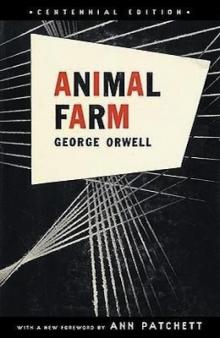 Animal Farm & 1984
Animal Farm & 1984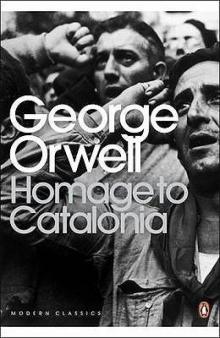 Homage to Catalonia
Homage to Catalonia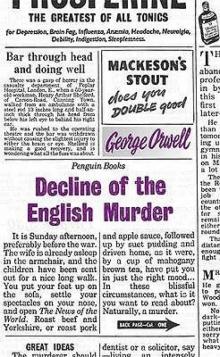 Decline of the English Murder
Decline of the English Murder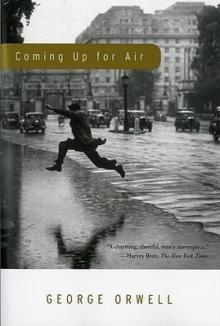 Coming Up for Air
Coming Up for Air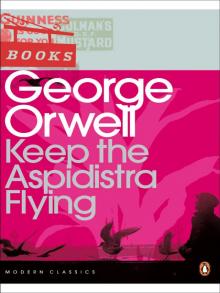 Keep the Aspidistra Flying
Keep the Aspidistra Flying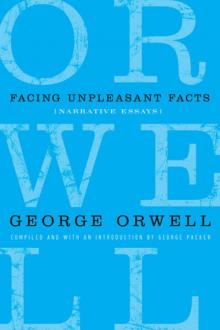 Facing Unpleasant Facts: Narrative Essays
Facing Unpleasant Facts: Narrative Essays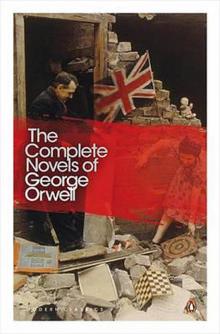 The Complete Novels of George Orwell
The Complete Novels of George Orwell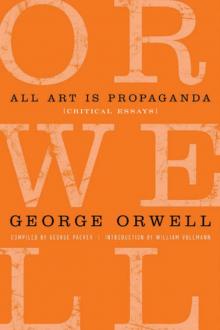 All Art Is Propaganda: Critical Essays
All Art Is Propaganda: Critical Essays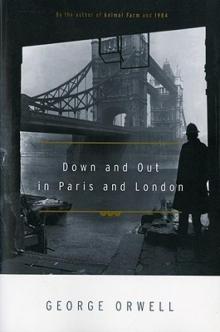 Down and Out in Paris and London
Down and Out in Paris and London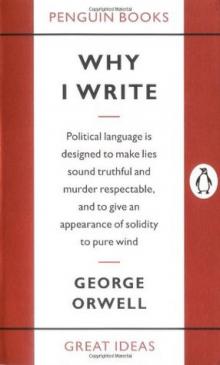 Why I Write
Why I Write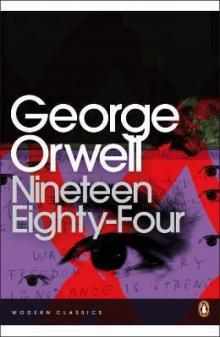 Nineteen Eighty-Four
Nineteen Eighty-Four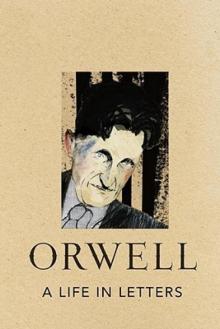 A Life in Letters
A Life in Letters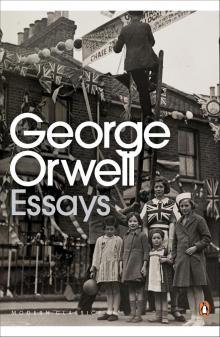 Essays
Essays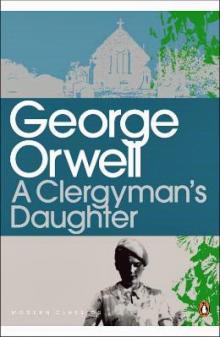 A Clergyman's Daughter
A Clergyman's Daughter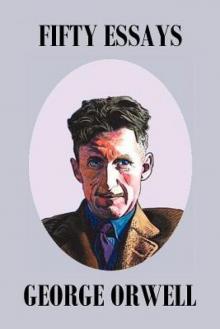 Fifty Orwell Essays
Fifty Orwell Essays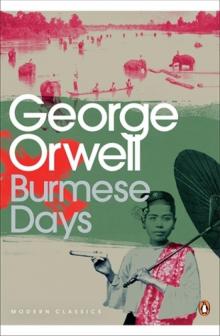 Burmese Days
Burmese Days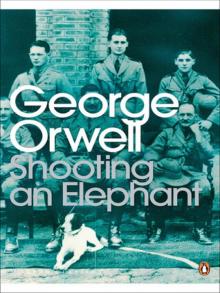 Shooting an Elephant
Shooting an Elephant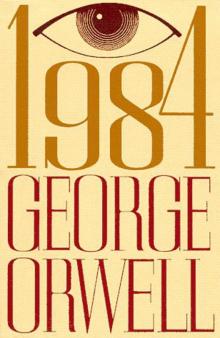 1984 (Penguin)
1984 (Penguin)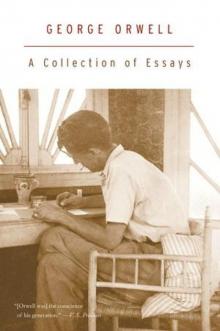 A Collection of Essays
A Collection of Essays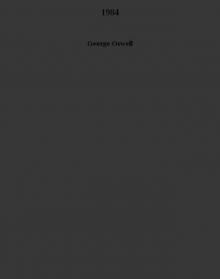 1984
1984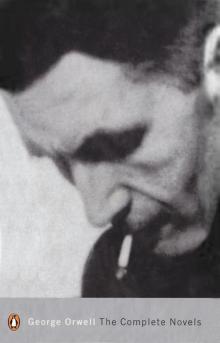 The Complete Novels
The Complete Novels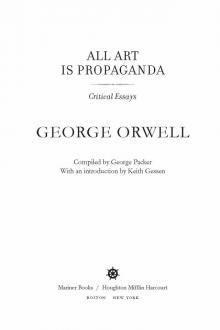 All Art Is Propaganda
All Art Is Propaganda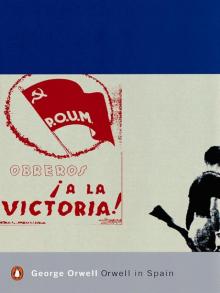 Orwell in Spain
Orwell in Spain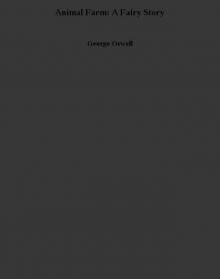 Animal Farm: A Fairy Story
Animal Farm: A Fairy Story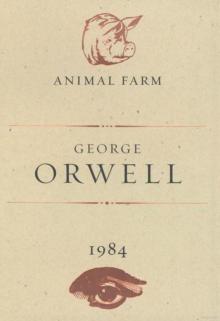 Animal Farm and 1984
Animal Farm and 1984